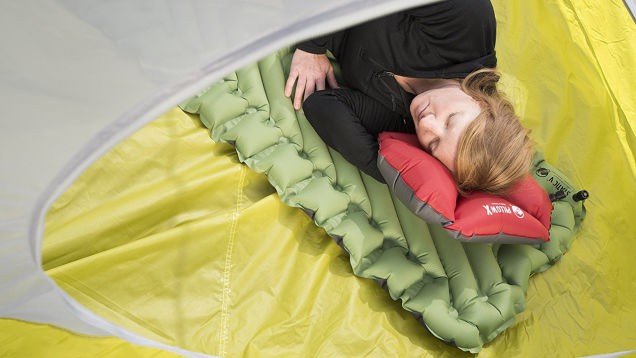
Considering the inconveniences and restrictions that came with the COVID pandemic, many will want to get a taste of fresh air; to be away somewhere, and spend quality time with friends and family just to breathe in the cool, fresh, outdoor air.
Camping is a sure way to enjoy and soak in nature. Camping can be done deep in the woods, by a lake or sea, or high up in the mountains. Thus, there are many unique places to spice up your camping experiences.
However, it can be depressing being deep in the forest at night without a source of light. In cold seasons and climates, a source of heat is essential. And, when camping alone, a person should have a communication device in the case of an emergency. Thus, to enjoy a hassle-free camping experience, it’s important to have a checklist.
Regardless of the camping destination or the number of participants, there are must-have items for a worthy camping experience. This guide explores five camping items to have in 2020:
1. Tent or a folding pop up marquee
For a camping trip, tents are considered one of the main essentials to provide shelter and protection. However, what many people don’t consider as an alternative, is a folding pop up marquee. Both a tent and a marquee will shield campers during the day or night. However, with a greater height and span, marquees can also help protect the trailer from pests or wild animals.
Camping tents and marquees come in different sizes and shapes. To reduce the luggage size a camper carries, especially when on foot, foldable tents should be used. These can be of any shape or size, depending on the number of participants.
Foldable tents and marquees are very easy to set up. They’re also easy to configure and can be installed in minutes. Before heading off on your trip, double-check to ensure everything is well packed, especially little things like the tent pegs or weights. A missing piece can spell disaster and risk the tents and/or marquees’ ability to remain properly secure.
To prevent rain or pests such as mosquitos from ruining your sleep, you should also ensure that the tents have no holes. Mallets and shovels are handy tools for driving the pegs into the ground, especially in dense soil.
2. Sleeping bags
Sleeping bags are favoured by the vast majority of campers worldwide. They’re very insulative, which makes them ideal for camping in cold weather.
Those interested in camping should ensure that they opt for an appropriate sleeping bag since there are different sizes and material options on the market.
A good sleeping bag should be able to cover a camper’s entire body. This is important because out in the wild, nature can be unforgiving. Subzero sleeping bags are a must if temperatures drop below zero overnight.
Sleeping bags can also come with additional items such as pillows. When purchasing a sleeping back, try and check if they come with such. A sleeping bag should also be designed so that it’s easy to fold and pack. Take note that a chunky sleeping bag will be problematic when packing it. Also, a sleeping bag that’s too light will not provide the necessary warmth in places that get cold at night.
3. Maps and compass
For those adventurous folks who like to camp away from the major campsites, a map and a compass are essential. Fortunately, as we’re living in the 21st century, most smartphones have GPS to get you where you need to go and help you stay on track.
Getting lost in the wild is not something anyone will want. It’s disastrous and might even lead to death, so it’s wise to ensure you have the right tools to keep your device up and running, like portable chargers. It’s also worth having a backup map of the area, just in case.
The primary cause of missing campers is a lack of any map or communication device to call for help.
4. First aid kit and sunscreen
A lot can occur while camping, especially if the camper has other activities to engage in, i.e. hiking, rock climbing, river wading, etc.
Accidents do happen, and everyone should be prepared for it. A first aid kit should have insect spray, helping kill bugs and harmful insects. This way, the camper can spray the camping grounds before setting the camp. They can also use this during the camping period. You don’t want to ruin a perfect camping trip by not being prepared for insects and bugs.
In hot regions, plenty of water, sun lotion, and painkillers are necessary. Sunburn can be painful, and long-term exposure to UV rays can also lead to skin cancer. Thus, sunscreen should be an essential part of your first aid kit. Painkillers help ease the pain and also reduce headaches, which can be beneficial when you need to keep on the move and have a clear head.
Hydrogen peroxide, bandages, cotton balls, and magnoplasm, which helps pull out splinters, come in handy when a camper has bleeding wounds.
There are countless circumstances you could find yourself in, so it’s best to prepare for the worst.
5. Water Bottle
Because water is an essential item wherever you go and depending on where you go, it can be difficult to find some, you want to go prepared. The last thing you want is to run out of water supply. Seriously, regardless of where you’re camping, carry a water bottle that contains water to last you at least a day. You can also bring along water purification tablets in case you need to take water from a nearby stream.
6. Cooking ware
When camping, especially for several days, portable cookware is necessary.
Since fire is needed, a matchbox should also be packed. An alternative to this is a portable gas stove that comes in handy when cooking a meal. A cooking pan, a plate, and a serving spoon are often considered essentials.
These are just minimal requirements to keep your gear light, but for those who aren’t constantly on the move, you can always add your own comforts for a better camping experience.
7. Pocket Knife
A pocket knife is the best multipurpose tool you can use when camping. You can use it for cutting fishing line, trimming a rope, dicing bait, open sealed packages, slicing food, sharpening sticks, tightening a screw, cutting tangled vines, or skinning small animals. If you forget your knife, you’re bound to feel frustrated during your camping trip.
8. Flashlight or Lantern
Even if you make a campfire, the light will only be useful within six feet from it. Thus, it would be difficult to find an item inside your tent or when you go to the toilet at night. To make your camping trip more convenient, bring along a portable battery-powered light such as a head lamp, lantern, or flashlight.
Any other additional items?
With limited supplies, campers can face many difficulties. If worse comes to worst, you could find yourself lost without food or supplies. Therefore, it’s advisable to consider everything that you may need for each camping trip. Learn about the environment you’ll be in, and find any natural resources if you’re lacking your own.
It’s also essential to know how to pack your equipment. Remember, it’s best to have these items protected in waterproof packaging at all times. This helps prevent damage caused by water or humidity and any spillages in your camping bag.
For those who can’t sacrifice their sleep, a camper can carry other items such as foldable chairs and tables and even inflatable mattresses. A hammock is excellent, too, especially when camping by the lake or sea.
Those who wish to go up a level can carry a wide range of solar-powered items, such as solar-powered radios, stoves, and even televisions. Oh, and don’t forget to bring toilet paper!
Factors like the duration of camping, the number of campers, and the place of camping play a massive role in determining a camping list. To ensure that no essential items are left behind, it’s crucial to elaborately plan earlier. A safe and well-prepared camper is a happy camper!







